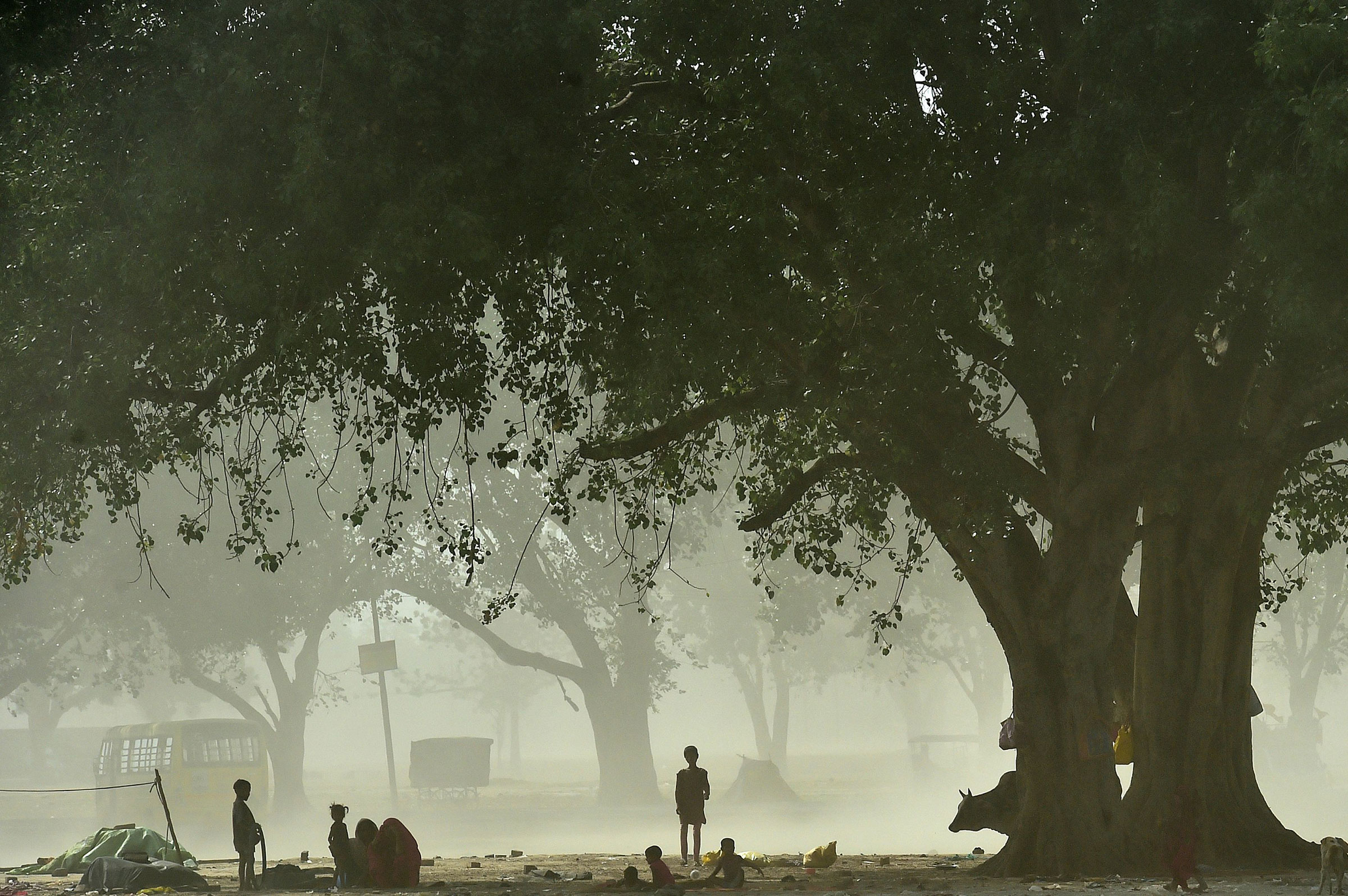In the Indus Valley stretching from India to Pakistan, temperatures hit up to 50°C (122°F) in early May. Together with high humidity, this heat pushes people to the edges of survival, especially those who must be outside or cannot get somewhere cool. We saw the same thing last year: dangerous heat and humidity under the heat dome above the U.S. Pacific Northwest. Elsewhere, high heat and strong hot winds are fanning wildfires from New Mexico to Siberia.
The World Meteorological Organization now all too regularly releases statistical firsts that seem to move inexorably up the thermometer. Beyond the headline numbers are the less well understood economic impacts of extreme heat; they range from lower productivity of workers, compromised infrastructure, reduced crop yields, and worsened health outcomes to impacts on tourism and leisure economies.
The truth is that in most countries, the wealthy can afford to stay cool. They live in areas with more shade; they have access to reliable energy or a generator for backup. Extreme heat compounds dilemmas for those on low incomes. Risk increases depending on where you live and the kind of work you have. With the U.N. estimating that over 1.1 billion people are at high risk from extreme heat—most of them in nations and communities with little or no access to affordable and reliable electricity—the need for scale is immense.
As people strive for prosperity, they will choose an air conditioner for comfort when they can afford one. Too often today, that purchasing decision means that these people are, perversely, architects of their own vulnerability because the AC units available at low price points in many low- and middle-income countries are dangerous for their communities and for global health. They are energy-inefficient, driving up energy demand, and they pollute, often using superpolluting hydrofluorocarbons as refrigerants, further accelerating climate impacts.
A weekly newsletter featuring conversations with the world’s top CEOs, managers, and founders. Join the Leadership Brief
In the effort to keep everyone cool in a hotter world, the air conditioner will, as currently deployed, only make the climate hotter. By 2050, the International Energy Agency expects the number of ACs in the world to quadruple. AC alone could account for half a degree of warming. In a world where we are on track for 3.2°C of warming, above the 1.5°C net-zero target, that is significant. Most households in hot countries today have not yet bought their first AC. It will be rising energy demand from those with rising incomes in low- and middle-income countries that will drive global electricity demand. It’s another argument for investment at scale in the global south alongside urgent efforts to curb emissions in the global north.
Air-conditioning needs to be hyper-efficient, pollutant-free, affordable, and well maintained. But just building better AC is not sufficient; it has to find its place in new strategies to build resilience to heat—that is, city design, building design, new low-carbon materials that keep buildings cooler in hot weather and warmer in cold. It means district cooling and planned greening of cities, where the social equity of a tree planted in an urban, concrete neighborhood should be valued higher than another tree in a leafy suburb. But one of our best returns on investment would be to waste the heat we generate cooling things down. The U.S. Department of Energy estimated that some 20% to 50% of industrial energy input is wasted as heat. That profligacy seems unconscionable in the midst of an energy crisis as the West pivots away from Russian energy.
The wet-bulb number—the mix of heat and humidity above which the body cannot cool—should become our key indicator, as important as the weather report and coupled with a clear warning to limit time spent exposed to the heat, to raise awareness, and to change behavior.
Without solutions, the global disparity will grow between those who can find a way to stay cool, protect their food supply, and benefit from vaccine cold chains and those who can’t. Extreme heat is literally on the front burner.
Kyte is dean of The Fletcher School at Tufts University
- Donald Trump Is TIME's 2024 Person of the Year
- Why We Chose Trump as Person of the Year
- Is Intermittent Fasting Good or Bad for You?
- The 100 Must-Read Books of 2024
- The 20 Best Christmas TV Episodes
- Column: If Optimism Feels Ridiculous Now, Try Hope
- The Future of Climate Action Is Trade Policy
- Merle Bombardieri Is Helping People Make the Baby Decision
